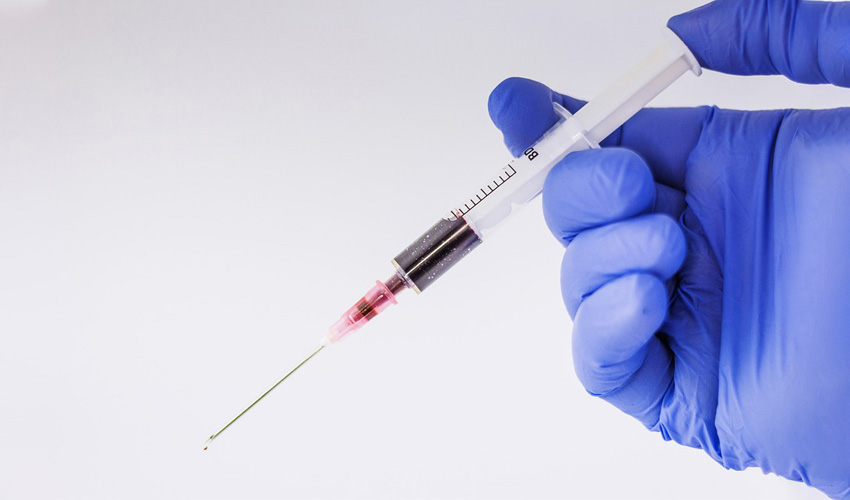4D printed micro needles to replace conventional injections

Several engineers at Rutgers University have used additive manufacturing to create tiny needles that could replace conventional hypodermic needles. 4D printing is a technological revolution, incorporating intelligent materials that can be programmed to change shape once printed. Taking advantage of this technology, a group of engineers have used it to launch a solution to the painful needles with which we inject drugs or obtain blood samples.
Conventional hypodermic needles are mainly used in hospitals and laboratories to treat patients. However, they can sometimes cause pain, scarring or even pose a risk of infection. This also affects people with diabetes, who often take blood samples several times a day to check their blood sugar. However, according to a study in the journal Advanced Functional Materials, these micro-needles could eventually replace conventional needles in the future. Once again, 3D printing is making great strides in the medical sector.

Credits: Riddish Morde
Properties of 4D printed micro-needles
Inspired by how parasites and bees adhere to tissue, these engineers developed the micro-needles with backward-facing barbs, which improve fixation when inserted into the skin. The main advantages of these needles are that they are easy to use, short, thin, minimally invasive and reduce both the risk of infection and the pain it can cause. According to Howon Lee, lead author of the project, “We believe that our 4D printed micro-needle matrix will enable a more robust and sustained use of minimally invasive, painless and easy-to-use micro-needles for drug delivery, wound healing, bio-scanning and other soft tissue applications.”
In the project, Rutgers’ engineers used a combination of micro 3D printing and 4D printing to create the spikes. After manufacturing, they were tested on a sample of chicken muscle tissue and showed promising results: the printed micro-needle was 18 times stronger. This exceeded previously reported samples, resulting in a more stable and robust drug supply, as well as improved biofluidic collection and bio detection, according to the study.

The micro-needle barbs allow for better tissue adhesion.
In this way, micro needles created with additive manufacturing could play an important role in biodegradation applications. They could detect DNA, enzymes, antibodies and other health indicators. For patients with diabetes, micro needles could offer a less invasive technique. You can find more information about the study HERE.
What do you think of these 4D printed micro needles? Let us know in a comment below or on our Facebook and Twitter pages! Don’t forget to sign up for our free weekly Newsletter, with all the latest news in 3D printing delivered straight to your inbox!






